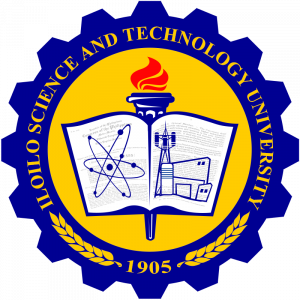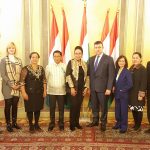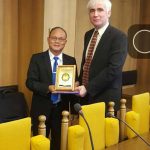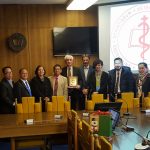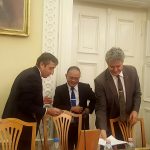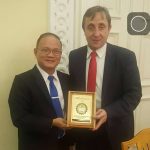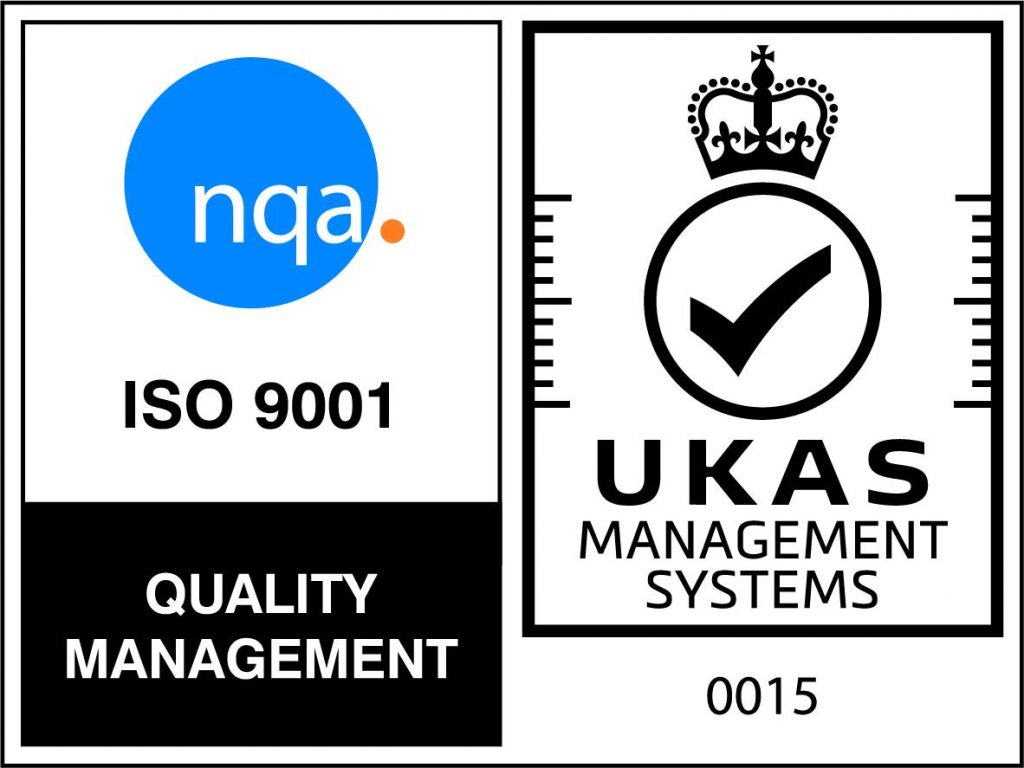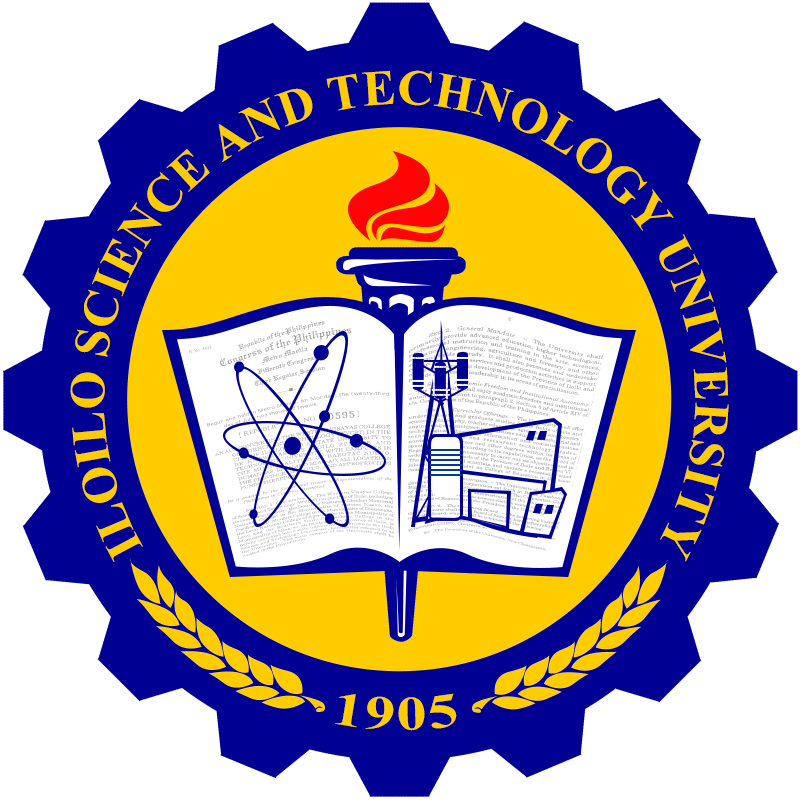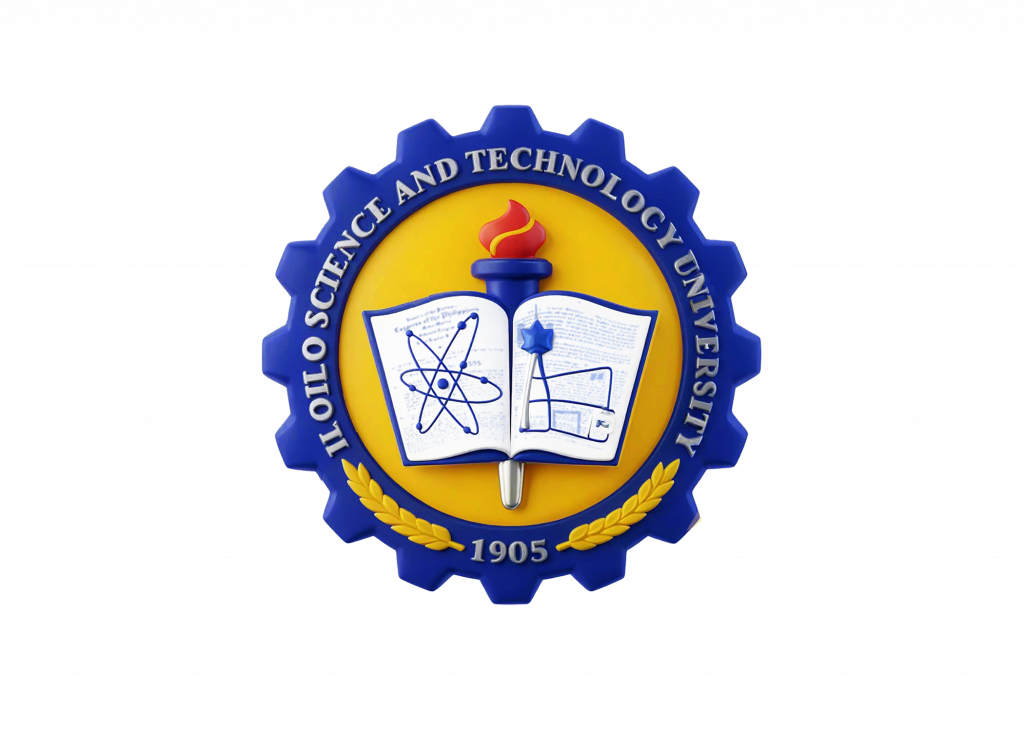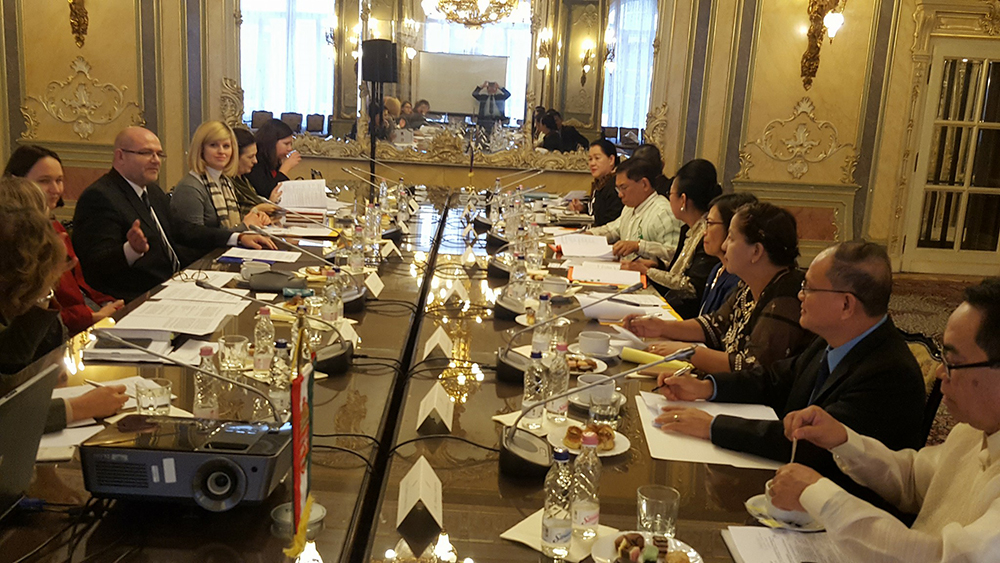
The Philippine-Hungary Joint Working Group meeting at the Ministry of Human Capacities, Mirror Hall, Budapest V, Akademi. Dr. Zoltan Gloviczski( second from left), President, Education Authority, heads the Hungarian delegation.
Dr. Raul F. Muyong was one of the members of the Philippine delegation in the 1st Joint Working Group (JWG) Meeting for the implementation of the Educational and Scientific Exchange Programme between the Commission on Higher Education (CHED) and the Ministry of Human Capacities of Hungary on December 10-16, 2017 at Budapest, Hungary.
The meeting was called for the goal setting, adoption of the agenda of the program and the Proposed Action Plan for the year 2018, 2019 and 2020. The baseline assessment of linkages between Philippine higher education institutions and Hungarian education institutions was also included in the meeting.
The Educational and Scientific Exchange Programme desires to strengthen the educational and scientific relations between the two countries. It also promotes education and student mobility in pursuance to the Cooperation agreement between the Government of Hungary and the ASEAN on Educational Cooperation, the CHED and the Ministry of Human Capacities of Hungary. The program offers Bachelor and Master education in the field of agriculture and sustainable development, medicine, water management engineering and hydrology, architecture and protection of cultural heritage and natural sciences and environmental studies. Doctorate and Postdoctoral studies in English language are also offered.
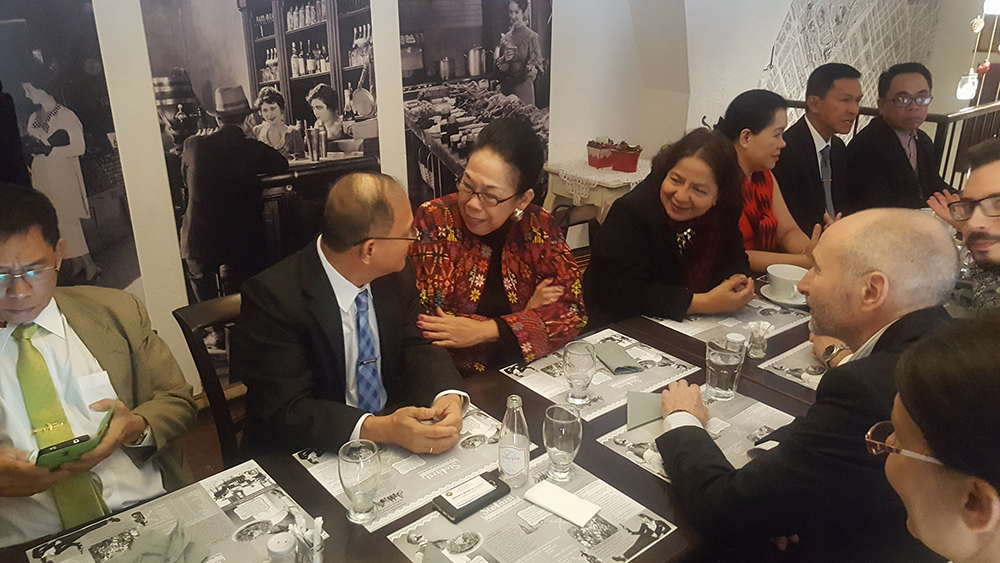
Dr. Muyong and CHED Chairperson Patricia B. Licuanan discuss some points in one of the meetings with the Hungarian counterparts.
The Joint Working Group is composed of representative tasked to implement and oversee the implementation of the program. The Philippine delegation was composed of Dr. Patricia B. Licuanan, CHED Chairperson; Mr. Napoleon Imperial, CHED Deputy Executive Director; Dr. Virginia Akiate, CHED Director; Consul General Paul Vincent Uy; and Ambassador Maria Fe Panganiban of the Philippine Embassy. Other members were the presidents of the different State Colleges and Universities namely: Dr. Edgardo Tulin- Visayas State University, Dr. Meriam Mani-Marinduque State University and Dr. Danilo Abayon-Aklan State University. The Hungarian delegation, on the other hand, was headed by Dr. Zoltan Gloviczki, President, Educational Authority.
Prior to the Philippines-Hungarian Joint Group meeting, the Philippine delegation and the members of Hungarian delegation paid a courtesy meeting with Dr. Laszlo Palkovics, Hungary State Secretary of Education at the Mirror Hall, Budapest V, Academia. Dr. Palkovics is the author of the Strategic Plan of the program.
The Philippine delegation also attended a luncheon meeting with Ambassador Maria Fe T. Pangilinan at Novotel Budapest Danube. Aside from the meetings, the delegates were also given the opportunity to visit Budapest Business School – University of Applied Sciences, Tempus Public Foundation, University of Veterinary Medicine and Szent Istvan University. The aforementioned institutions offer scholarships to Filipino students under the Stipendium Hungaricum Scholarship Program through the Commission on Higher Education.
See related photos:
- The JWG poses for the camera after a courtesy meeting with Dr. Laszlo Palkovics (5th from right), State Secretary of Education of Hungary.
- Dr. Raul F. Muyong wtih Dr. Tibor Bartha, Vice Rector for International Affairs, University of Veterinary Medicine, Budapest.
- The JWG visit at the University of Veterinary Medicine, Budapest.
- Dr. Raul F. Muyong shares some ideas with Dr. Janos Toszer and other Hungarian official.
- The Philippine delegation in their visit at the Szent Istvan University.
- Dr. Muyong gives a token of appreciation to Dr. Janos Toszer, Rector, Szent Istvan University.
- The Joint Working Group poses for the camera at the Budapest Business School – University of Applied Sciences.
